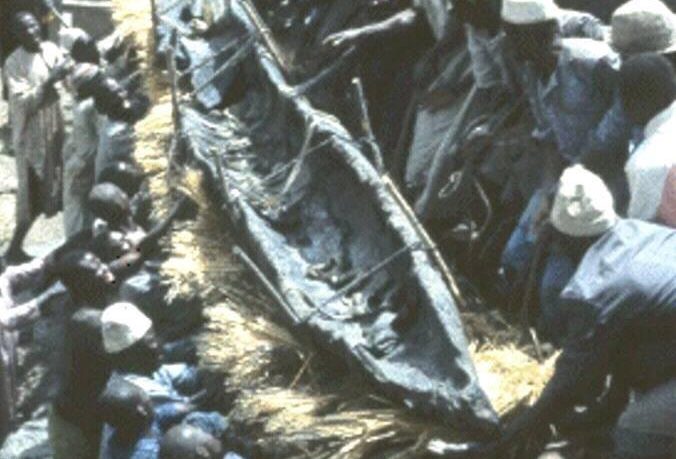You are here: Home / Misc. / Black History / Unveiling the Legacy: How Africa Shaped the World’s History, Culture, and Innovations.
Like
Like
Love
Haha
Wow
Sad
Angry
1
(ThyBlackMan.com) Over the years, I have shared information about the accomplishments of Africans that largely go unrecognized and overlooked due to a deliberate campaign to suppress, obfuscate and ignore African people and our history. For example few people know Africans were the first boat builders, the first navigators of the rivers and lakes in African who later circumnavigating the world.
Celebrating African and Black history during the shortest month of the years is counterproductive even though we need the exposure. We should celebrate African/human/world history all year long, daily because it is human history.
Let’s look at the things we take for granted that were begun, invented and developed by our aboriginal African ancestors. Africans developed the concept of family as an organized social as well as a biological unit. Family formed the basis of social organization and culture. Africans recognized the importance of blood connections and used those blood connections what we call families as the core foundation of their group, tribe, clan and society. Leadership and governance were based on the family or clan.
While animals have instinctive ways to determine leaders for example the proverbial “alpha male”, humans developed specific methods to create formal leadership and governance. On the most primitive level, leadership was conducted by group consensus through elders who had life experiences and served as leaders because of their and direct connection to their ancestral family members. These elders were charged with not just wisdom and guidance in daily affairs but also with propitiating the spirit realm, serving as intermediates between the family members, the forces of nature and the invisible energies they perceived all around them.
The leaders created traditions, rituals, and ceremonies to acknowledge births, deaths, status changes such as young adulthood and marriage, seasonal variations and to map the passing of the heavenly bodies. This was the origin and purpose of Adams Calendar, Nabta Playa and the similar megaliths.
This is also the origin of what we call culture. These rituals and ceremonies included chants, hand clapping, foot stomping with rudimentary instruments that had deliberate and specific meanings, reasons and intentions for doing them.
In short Africans invented government whether it was tribal elders, tribal council, selected chiefs, hereditary chiefs or kings and queens. As their groups expanded over territory and their populations grew, they developed hierarchies for social administration, they created divisions of labor, work details and they encouraged and incorporated artistic skills and incorporated them into their daily lives.
So when we attend a wedding or a funeral or witness governments in action remember our ancestors were the first to do these things! When we look at Africa we see the beginnings of social/civil organization what we now call civilization. We see aboriginal people exchanging, battering and trading amongst themselves, other tribal groups in other lands. This was the beginnings of commerce across the continent and later into Asia and Europe.
Our ancestors were the first to chop and carve trees into boats and canoes, to weave reeds to make water tight vessels. Africans were the first to use these boats, canoes and sailing vessels to engage in trade, taking their surplus crops, goods and artifacts first to nearby groups, then throughout Africa and subsequently the world.
Europeans admit the first articulated and practiced system of ethics (Maat) originated in Africa. Timelines indicate the first monarchy/dynasty in the world, extensive territorial occupation and social organization originated in Africa along the Nile Valley. Africans had empires but they were not all created by violence and invasion, some were the result of force and conflict some were not.
In review Africans created: family based social organization; we created rites of passage to mark the growth and transition of members within the community and determined how they each fit into within the social fabric and scheme using trial and error and later formalized traditions. We invented rituals and ceremonies, we invented and developed trade and commerce.
Africans created metallurgy, working in metals like gold, cooper, bronze and iron. We invented clothing, we created early weaving machines we invented adornment, demarcations and decorations to distinguish social status, to tell whether a female was married was an adolescent or a male was an initiated member of the community, a warrior or an elder. We were the first to map the heavens.
Africans recognized sound had power and invented music, instruments and incorporated music and sounds into our daily activities. We invented meaningful symbols and their recognition whether it was hieroglyphics on papyrus, on the walls, the megaliths or Her-em-akhet (misnamed the Sphinx by the Greeks).
Africans created practical technology whether it was a digging stick, a rudimentary plow, the ramp, and pulley or a weaving loom. We developed farming techniques like crop rotation, using fire to burn the soil to give it nutrition. We were the first fishermen. We created the first planned urban centers and cities. We were the first educators.
I could go on but you get the drift, we are a creative, inventive and profoundly gifted people. This same creativity resides in our/your DNA; it is in our genes and blood. We do ourselves our ancestors and progeny a disservice if we allow our genius to be stifled and atrophy, not be fully developed or expropriated by others for their benefit and not ours!
Written by Junious Ricardo Stanton
Official website; http://fromtheramparts.blogspot.com



